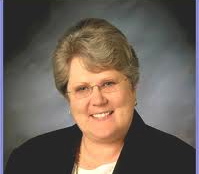Three members of the education task force on Wednesday fought back against criticisms over the cost of recommendations.
Richard Westerberg, Mike Lanza and Linda Clark offered an overview of the recommendations in front of 230 people at the City Club of Boise’s meeting.

They discussed Idaho Core Standards and college go-on rates at length, but some of their most fervent remarks were saved for the implementation process.
Some legislators and officials have criticized the cost of the 21 recommendations issued in August by Gov. Butch Otter’s Task Force for Improving Education. Cumulatively, the recommendations’ price tag could exceed $350 million over six years.
Westerberg, the task force’s chairman and a member of the State Board of Education, said debate over the cost may overshadow the real issues of student achievement, low college go-on rates, the demands of the workforce and high school graduates’ need for remediation upon entering college.
“I’ve heard a lot pushback about the cost, but I’ve yet to hear the first real criticism of the recommendations in form and function,” Westerberg said.
Lanza, who helped lead the charge to recall the Students Come First laws through the group Idaho Parents and Teachers Together, said he was most impressed by the near unanimous support on the task force for the recommendations. He also said multiple years of recent budget cuts to the K-12 schools budget has put the state in a bad position moving forward.

“As long as we continue to pursue solutions in the same way we have, we can probably expect to have the same results,” Lanza said. “We’re always asked the question ‘how much will this cost?’ Can we afford to not make this kind of progress in our school system?”
Superintendent of Public Instruction Tom Luna has put forth a 2014-15 budget request that calls for a 5.4 percent spending increase – representing about $69 million in new funding. The increase is tied to a multi-year plan to implement two of the task force’s key recommendations – restoring more than $82 million in cuts to district’ operational funding and transforming teacher pay through a career ladder system.
Clark, superintendent of the Meridian Joint School District – the state’s largest district – called on Otter and the Legislature to find the will to implement the recommendations.
“It has been a very long time since all stakeholders came together with a singleness of purpose,” Clark said. “What has come out of the task force is a framework. What we are really asking the state is to develop a strategic plan to move us toward those.”
Lanza, Clark and Westerberg all voiced support for the new Idaho Core Standards, attributing much of the opposition from citizens and legislators to “misinformation.”
Clark and Westerberg emphasized that standards are not the same thing as curriculum and district leaders will still be able to make local decisions about curriculum and textbook selection.

However, Clark did voice concerns about the Smarter Balanced Assessment Consortium tests that are aligned to the Idaho Core Standards. She estimated it would take an average student more than seven hours to complete the tests in English language arts and math.
She added that parents “would be shocked” if they reviewed some of the questions that students will be expected to answer.
Idaho students will complete a pilot test version of the test this year and the full assessment will be given next year – when it is tied to accountability.
Disclosure: Idaho Education News reporter Kevin Richert is a board member of the City Club of Boise and organized Wednesday’s forum.
